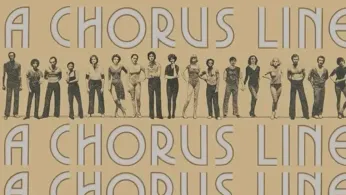
4 hours ago
‘A Chorus Line’ at 50: The Groundbreaking Musical’s Enduring Legacy for Queer Communities
READ TIME: 3 MIN.
This July marks the 50th anniversary of “A Chorus Line,” the Tony and Pulitzer Prize-winning musical that forever changed the landscape of Broadway and the broader cultural conversation around LGBTQ+ representation. Since its 1975 premiere at the Public Theater before quickly transferring to Broadway, “A Chorus Line” has been widely celebrated not just for its innovative storytelling and choreography, but for its unflinching honesty in depicting the lives of diverse performers—including gay characters whose stories had rarely, if ever, been told so frankly on the musical stage .
At a time when queer identities were largely marginalized or rendered invisible in mainstream entertainment, “A Chorus Line” stood out as a beacon of authenticity. The character of Paul San Marco, a gay Puerto Rican dancer, was revolutionary: his deeply personal monologue about coming out and facing rejection from his family was a rare portrayal of a gay man as a fully realized, sympathetic protagonist rather than comic relief or stereotype. In a 2019 interview, theatre journalist Patrick Pacheco reflected, “People forget just how revolutionary it was to have the biggest success on Broadway feature, as you said, the gay character as the emotional epicenter of the show” .
Paul’s monologue—raw, vulnerable, and performed center stage—marked a seismic shift. For many LGBTQ+ audience members and performers, his story was the first time they saw their own struggles and triumphs reflected with dignity and nuance on a major stage. As musical theatre historian C. Thompson notes, “A Chorus Line became the first Broadway musical to have gay characters talk about sex, whereas previously gay characters were restricted to the stereotypical personality traits of gayness” .
“A Chorus Line” was also a pioneer in featuring racially and ethnically diverse characters, including the multi-dimensional depictions of Paul San Marco and Diana Morales. In an era when Broadway overwhelmingly favored white actors and stories, the show’s focus on performers of color—and its insistence that every dancer’s story mattered—was a landmark moment for inclusion . This intersectional approach to representation has inspired generations of LGBTQ+ and BIPOC artists to pursue careers in the arts, knowing that their voices can—and should—be heard.
The importance of “A Chorus Line” in LGBTQ+ cultural history cannot be overstated. Its debut followed closely on the heels of the Stonewall uprising and came at a time when the LGBTQ+ community was still fighting for basic rights and recognition . By presenting queer life as a natural part of the human experience, the musical helped pave the way for more openly LGBTQ+ characters and stories on Broadway—culminating in later shows such as “La Cage aux Folles,” “Rent,” and “Fun Home.”
Moreover, “A Chorus Line” arrived during a period of both progress and backlash for the LGBTQ+ community. In the late 1970s, advancements in anti-discrimination protections were met with renewed opposition, as seen in campaigns to repeal gay rights ordinances and the tragic assassination of Harvey Milk. Yet, the show’s enduring success and influence signaled a cultural shift: that stories of LGBTQ+ people—and artists at the intersection of multiple marginalized identities—were not only worthy of being told, but could also achieve mainstream acclaim .
As “A Chorus Line” commemorates its half-century milestone, productions across the United States and internationally are revisiting the show’s legacy and refreshing its relevance for new audiences. The anniversary is marked by special performances, panel discussions with original cast members, and educational initiatives highlighting the show’s groundbreaking history. Broadway veterans and LGBTQ+ advocates alike continue to emphasize the importance of representation, affirming how the musical’s depiction of queer and BIPOC characters opened doors for future generations .
For LGBTQ+ theatre fans, artists, and allies, “A Chorus Line” remains more than a milestone in musical theatre—it’s a testament to the power of visibility, authenticity, and community. As the lights rise on the anniversary celebrations, the stories at the heart of “A Chorus Line” continue to inspire, reminding us all that everyone deserves a place in the spotlight.






